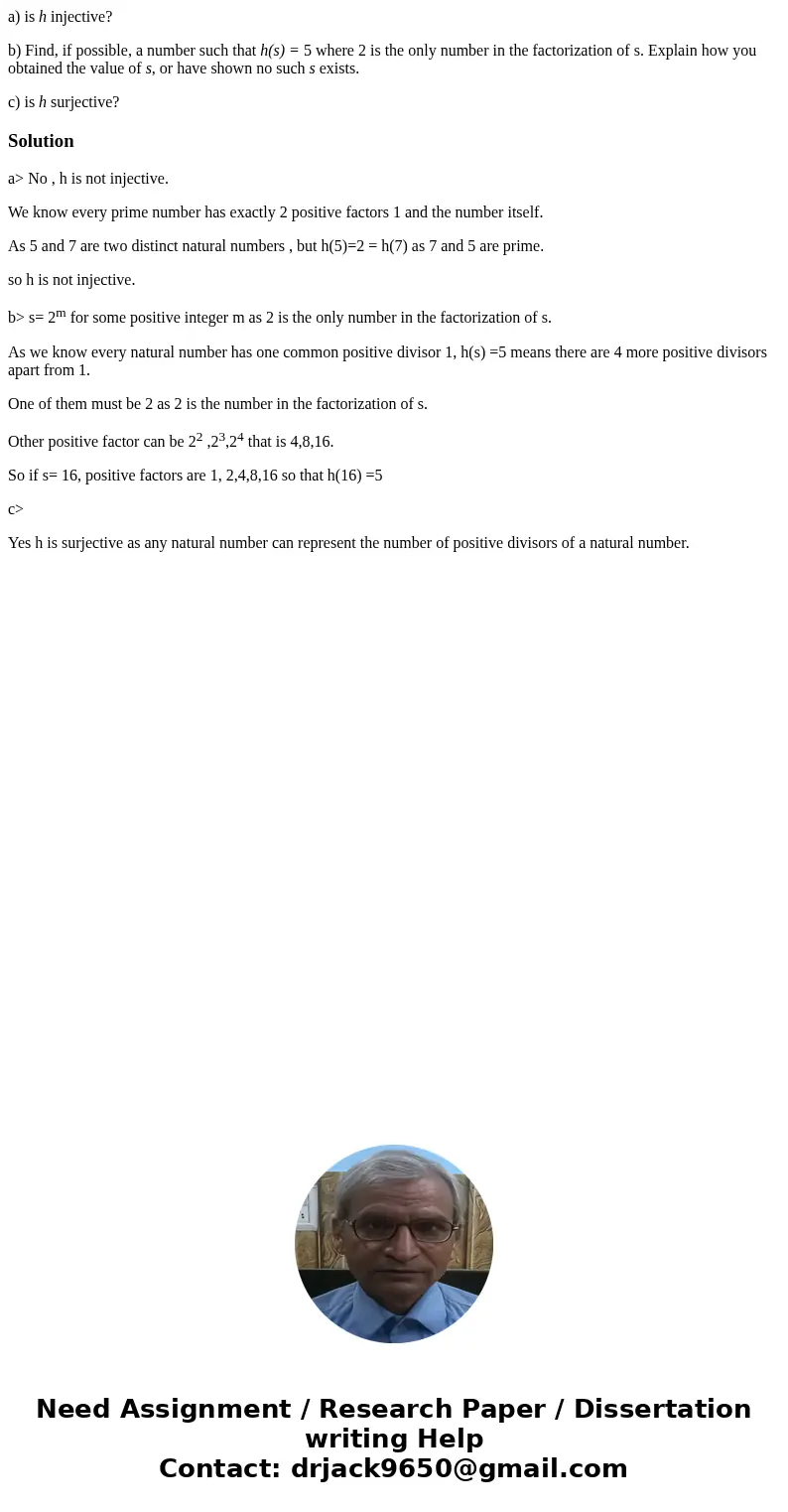a is h injective b Find if possible a number such that hs 5
a) is h injective?
b) Find, if possible, a number such that h(s) = 5 where 2 is the only number in the factorization of s. Explain how you obtained the value of s, or have shown no such s exists.
c) is h surjective?
Solution
a> No , h is not injective.
We know every prime number has exactly 2 positive factors 1 and the number itself.
As 5 and 7 are two distinct natural numbers , but h(5)=2 = h(7) as 7 and 5 are prime.
so h is not injective.
b> s= 2m for some positive integer m as 2 is the only number in the factorization of s.
As we know every natural number has one common positive divisor 1, h(s) =5 means there are 4 more positive divisors apart from 1.
One of them must be 2 as 2 is the number in the factorization of s.
Other positive factor can be 22 ,23,24 that is 4,8,16.
So if s= 16, positive factors are 1, 2,4,8,16 so that h(16) =5
c>
Yes h is surjective as any natural number can represent the number of positive divisors of a natural number.

 Homework Sourse
Homework Sourse